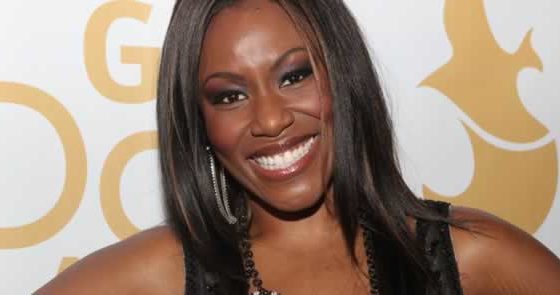With some Christians hoping for a tone-downed message, BarlowGirl goes another round without pulling punches.
It’s no longer business as usual for BarlowGirl.
Suffice to say there’s been some good, old-fashioned house cleaning taking place on the heels of the band’s most striking year yet.
On the road 228 days last year, these sisters — Alyssa, Lauren and Becca Barlow — pushed hard in support of their sophomore record, Another Journal Entry (Fervent), from which BarlowGirl’s fourth No. 1 hit, “I Need You to Love Me,” propelled the band to be recognized as one of Yahoo!’s Who’s Next music artists in early ’06. Later that track was dubbed Christian radio’s most played CHR song of the year. Keeping momentum going, BarlowGirl wrote its third record after their fall tour ended in November and, after the holidays, settled into a several-week stint in Nashville to record How Can We Be Silent, which streets on July 24. Simultaneously, the trio received its first “Group of the Year” GMA Dove Award nomination.
“We have loved every bit of it. If we had to do it all over again, we wouldn’t change a thing,” says Becca. “But I do love, now, getting into a different rhythm” — a change of pace that began with a “working” cruise soon after the group talked with CCM Magazine in April during Gospel Music Week. All its notoriety suggests BarlowGirl has earned some breathing room. Now, with deeper, established roots in the music scene, they can be more selective about their work schedule.
“We go out on the weekends and do three shows — Friday, Saturday and Sunday — and then we’re home Monday through Thursday,” Lauren says. “It’s really cool to have so much time [at] home.” Just in the nick of time, too. This past year, the women gained some much-needed perspective for themselves.
“We’ve realized what boundaries are this year,” Becca explains, “how we’re real people and we need to take time to do real things,” like laundry, making your own bed and being home for more than 24 hours. Lauren sums up the matter, saying, “This past year has really been refreshing. We want to be a family again.”
turbulent peace
The notion that this last year or so has been “refreshing” comes up several times during the interview, and one can’t help but believe the group has been, indeed, reenergized to take care of business.
That has to do, in part, with the new home the family purchased this spring.
“We had two weeks off from making the album until we were going on the road again — and we had to move into our new house,” Alyssa says, describing the back-to-nature, country property. That’s two weeks to sort, box, move and unpack everything from a childhood home of 16 years.
“We decided that if we worked really hard moving that first week, then we’d get to relax the second week,” Alyssa continues. “So the first week, even though it was strenuous, it was fun to paint the rooms together as a family and wallpaper as a family and unpack boxes. We went through old pictures. It reminded us, ”˜Oh, yeah, we don’t always have to do business together. We are a family.’”
That two-week stretch was one of the longest at home the Barlows had been able to have together in nearly five years.
“We got everything done the first week, which was a miracle,” Alyssa picks up, “so that next week we had so much family that would come by and ring the bell saying, ”We just thought we’d stop by.’ We saw old friends, played games and people brought over ice cream.”
With home improvements taking place on the outside, there was also emotional restoration taking place inside.
“With the family stuff,” Lauren says, “it was [all about] business these last few years, since our parents are our managers — which is amazing. I wouldn’t have it any other way. But we were together every day and it [became] about business. We girls love to be informed about what’s going on, all the details, so they’d just tell us. It just became business all the time, and we had to find boundaries.” So, for example, the band aims to talk business only from noon to 1 p.m. so as to avoid slipping into old, all-consuming habits.
The women also felt lead to do some personal gut checks.
Says Alyssa, “I think this year I felt, all of us felt, that God came in taking another step to purify us. It was as though God said, ”Girls, it’s going to hurt, but you are going to be different because of it. Will you allow Me to go a little bit deeper in your hearts? I’m going to have to chisel away at some different things that you are holding on to.’”
Lauren shares part of her experience. “One of the things that God is trying to teach me is dying to myself,” she says. “That’s been my thing this year, pushing down all the things that I idolize above everyone else. Rather than put me first, I put others first…to love like Christ.”
wounded healers
The psalmist writes, “Weeping may linger for the night, but joy comes with the morning.” Getting together their own business — vocational and emotional — is dawn breaking for Becca, Alyssa and Lauren, and it’s giving them a new authority with which to offer a cup of cool water to suffering hearts on How Can We Be Silent.
“Hearing all the brokenness,” Lauren says, “kids who are in line and you’re trying to take as much time as you can — which is about 15 seconds — and they say, ”I’ve never told anybody this, but my parents abuse me,’ or ”I’m a cutter, and I need prayer.’ What do you do with that, the brokenness of this generation? That’s where a lot of this [record] is coming from. We’ve heard the brokenness of our generation, and our desire is to go deeper with them to heal their brokenness.”
BarlowGirl hopes to redeem at least some of that pain by shining a light into the suffering. With the group’s signature three-part harmonies, songs such as “Here’s My Life,” the jazz-influenced “One More Round” and the dramatic, rock-guitar driven lament “Song for the Broken” add a darker-than-expected shade to the new project, drawing out noticeable contrast when compared to the group’s previous work.
The mid-tempo “I Believe in Love” was inspired by a book Alyssa was reading. The chorus reveals a statement found on the walls of a World War II concentration camp:
I believe in the sun
even when it’s not shining
I believe in love
even when I don’t feel it
And I believe in God
even when He is silent.
“I just bawled as I read those lines,” Alyssa says. “I think I was feeling that because of my sin and some of the stuff God was dealing with, I felt like maybe I couldn’t run into His arms as much as I normally did. But the thing I love about God is that it doesn’t end there. You have that statement of faith: I believe, even when you seem distant from God.”
Tried and true is the balance of How Can We Be Silent. BarlowGirl stands well-known for its anti-conformity posture against narcissistic cultural messages that, as BarlowGirl sees it, only end in people’s suffering, expressed pointedly in drug and alcohol abuse, cutting and other forms of poor self-image.
“I don’t know that we’ll ever stop growing in our passion about this subject of not conforming,” Alyssa says. “It’s something that God challenges us on every day.”
Lauren cites what’s perhaps BarlowGirl’s most aggressive track yet, “Million Voices,” as a hammer at such cultural perspectives. “The album’s title actually comes from this song,” she explains. “It’s saying, ‘Generation, we have a voice. We can speak. God has given us something to say and to speak up for Him.’ Honestly, this world is trying to make us shut up about our faith, and we’re not going to stand for it.”
Alyssa picks up her sister’s thought. “I think we keep wanting to say to people, ‘We’ve found our voice.’ We’ve realized that as Christians God has given us a voice, and we want to give people permission to use it.”
What’s mystifying to the ladies is that sometimes other Christians suggest the band tone down its message. Lauren reveals, “There are definitely people who say to us, ”˜You know, if you didn’t talk about God so much, then maybe more people would listen to your music.’”
“They say, ‘You have such great appeal,’” Becca continues. “’If you would just stop talking about God, you’ll sell more albums.’ And we’re just like, that’s not what this is about.”
The song “Keep Quiet” addresses the matter. “It’s about how we as Christians feel like we are not supposed to speak so that we will be more acceptable and more relevant to this world,” Lauren says. “I know we’re not supposed to push it down people’s throats, but do you realize we have the answers to all of the world’s problems, [but] we don’t want to be offensive?” She drives the point home. “I don’t think I can talk about anything else. God is everything to me. What He does in my life is all that I am. We can sing songs that help people feel dandy, like they’re on a sugar high — but I want people’s lives to be touched. I want people’s lives to be changed. Any way that I can speak into someone’s life and have their lives changed like I’ve been changed by the love of God, that’s what I want to do for people.”
“I definitely don’t want us to come across as, ‘Just be bold! Just speak His name!’ and not have actions that follow it,” Alyssa responds. “I think what’s definitely on our heart is that people would know us first and foremost as girls who serve God and that our words back it up.” How Can We Be Silent emerges, then, as a call to action.
“We want to be bold and faithful in actions and in words,” Alyssa says, “and to make people realize they can do that, too. Jesus was bold when He stood up in the temple and read Isaiah 61 saying to the people, ‘Today this has been fulfilled. I am He.’ His works and His actions portrayed that. We as Christians, as artists, our works need to back up our faith, too.”
Gregory Rumburg is a freelance writer and chaplain based in Nashville.
Copyright © 2007 CCM Magazine, Used by Permission
Like what you’re reading?
Get the full scoop by subscribing to CCM today! Click Here











